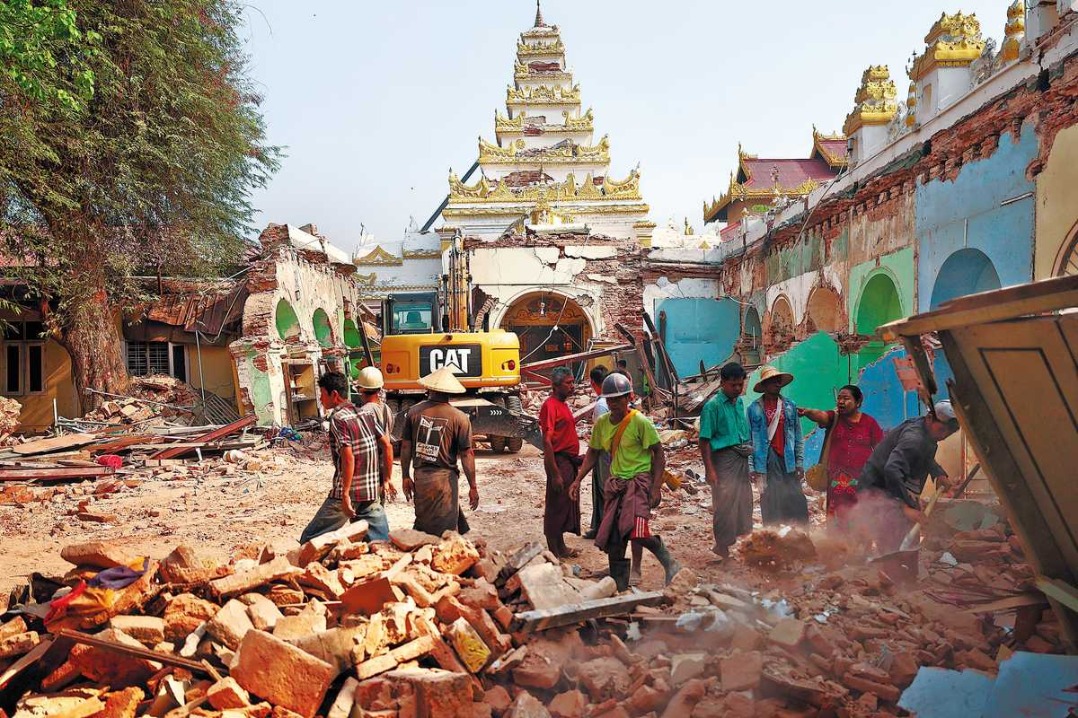South Asia facing extreme, frequent heat waves


The mercury rose above 48 C in some parts of Pakistan as locals fell in the grip of the latest heat wave. Experts say that a pattern of extreme and frequent heat waves, which can lead to a public emergency, is emerging in South Asia, linked to climate change.
According to a warning from the Pakistan Meteorological Department, most of the plains across the nation will remain under the influence of a scorching heat wave until Saturday.
The daytime temperatures in central and upper Punjab are expected to be 5 C to 7 C higher than seasonal averages; the southern parts, including Sindh, southern Punjab and Balochistan, will continue to experience 4 C to 6 C above normal temperatures. The cities of Dadu and Jacobabad recorded the highest temperature of 48 C on Monday.
Media outlet Pakistan Today reported on Monday that as temperatures kept rising, hundreds of patients suffering from heat stroke have been reported across Punjab. This has strained hospital resources in major cities and areas of South Punjab to their limits, with a high influx in emergency departments.
Health authorities in Pakistan have advised residents to stay indoors during peak hours, increase the intake of water and minerals, with the elderly, children, those with preexisting health issues, and outdoor workers and commuters being most vulnerable to heat strokes.
"Avoid exposure to direct sunlight during the daytime and remain hydrated," the new advisory issued by the meteorological department said.
A spokesperson from Pakistan's Provincial Disaster Management Authority said heat stroke centers have been advised to stay fully operational, while hospitals and rescue groups are on alert, reported Aaj News, a local media outlet.
The mercury also soared in parts of India with the meteorological department forecasting that states in northern and central India need to prepare for a prolonged heat wave. According to its statement on Monday, maximum temperatures in the range of 40 C to 46 C were recorded in most parts of Rajasthan and Punjab.
Emergency advisory
Bangladesh has also recently grappled with one of the most severe heat waves in recent years. Last week, the country issued an emergency advisory urging people to remain cautious and take protective measures.
Christine Loh, chief development strategist at the Hong Kong University of Science and Technology's Institute for the Environment, said in parts of Pakistan temperatures are 4 C to 6 C higher than seasonal averages, with some places reaching above 50 C; the temperatures are high even at night.
Thus a pattern of severe heat waves in South Asia is "clear and accelerating", she said. "What once might have been a one-in-a-hundred-year event, is recurring frequently."
She cautioned that this phenomenon leads to heat stress or dehydration, which is a public health emergency. It is important for local agencies to take preventive measures to combat the impact of the heat on humans and save lives. "Extreme heat kills. Early warning is vital. Tell people what to expect before the heat arrives, so they know what to do and what not to do."
Apart from that, extreme heat usually worsens water stress, which can also affect crops and food. It may even cause power shortages, Loh added.
Shahid Khaqan Abbasi, former prime minister of Pakistan, said that freak weather, including both extreme heat and cold, is increasingly taking place in South Asia, evidently caused by climate change.
He said that while measures such as having protective eyewear and clothing and improving workplace conditions are helpful, it is important to address the root cause of heat waves — which is energy consumption and greenhouse gases associated with global warming effects.
vivienxu@chinadailyapac.com

































